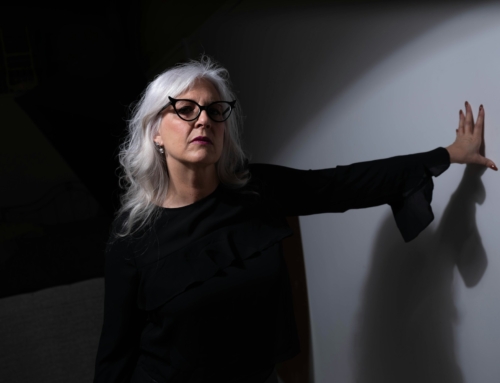I’m from California, the land of earthquakes. Most of us like the ground because it gives us a sense of groundedness and stability. Earthquakes shake this sense of stability – and we feel as if nothing is stable if the ground is not stable.
Postmodern Instability
 Our postmodern culture provides us with little stability. It is a culture that is changing faster than any other culture in history. Technology changes faster than our brains or skills can comprehend. Our computers, phones, and even cars are outdated from the moment we purchase them – as are the skills we learned to use or maintain them. Jobs and careers seem to change faster than the speed of light and our skills and interests quickly become outdated. Traditional moral values are labeled “medieval,” but one decade’s values are quickly replaced by the newest fad, changing almost as fast as clothing styles.
Our postmodern culture provides us with little stability. It is a culture that is changing faster than any other culture in history. Technology changes faster than our brains or skills can comprehend. Our computers, phones, and even cars are outdated from the moment we purchase them – as are the skills we learned to use or maintain them. Jobs and careers seem to change faster than the speed of light and our skills and interests quickly become outdated. Traditional moral values are labeled “medieval,” but one decade’s values are quickly replaced by the newest fad, changing almost as fast as clothing styles.
Human relationships that used to be the bedrock of society are ever moving. Americans treat houses as financial investments – rather than investing in communities, we are in constant movement. The average American moves once every five years. Spouses are traded in for newer models (the divorce rate is four times what it was in 1955) and families are reduced to occasional visits due to constant human mobility. Ten times as many American couples either cohabitate before they marry or cohabitate rather than marry than in 1960; more than half of all women aged 16-44 now cohabitate. And marriage itself is down by fifty percent since 1970. Almost half of American children and almost three-quarters of African Americans are born out of wedlock.
Even the definitions of words are constantly changing, often so quickly that they lose all their meaning. The word “marriage” is just one example. Individuals have legally “married” a roller coaster, a steam engine train, the Berlin wall, a video game character, the Eiffel Tower, a tree, a Barbie doll, a picture of themselves, an iBook, a sex doll, a radio, a 50 lb. piece of granite, bridges, and a body pillow – to say nothing of people of the same sex and animals, though the latter is not yet legal. The definitions of “politically correct speech” change faster than billboards, as do the definitions of “hate crimes” that include thoughts and beliefs.
The Importance of Stability
 What ground can we stand upon in a turbulent sea of changing technology, skills, relationships, values, and meanings? Do we even need stability, or should we just get used to all as flux? Back in the 1970s, for example, Alvin Toffler suggested that laws should recognize short-term contractual marriages rather than lifetime marriages.
What ground can we stand upon in a turbulent sea of changing technology, skills, relationships, values, and meanings? Do we even need stability, or should we just get used to all as flux? Back in the 1970s, for example, Alvin Toffler suggested that laws should recognize short-term contractual marriages rather than lifetime marriages.
Yet a sense of stability is useful. Houses built upon stable foundations last lifetimes. One shouldn’t build houses upon sand (Mt 7.24-27) and one cannot build houses upon rushing water or air. It’s impossible to raise healthy children when “partners” constantly change. It’s impossible to grow connectedness when people constantly move. Trees cannot grow where they can’t grow roots and when they have shallow roots, they are easily blown over in storms.
Likewise, businesses need a stable political order and laws in order to grow. Children need stable parental figures to grow. Humans need stable morals and values if they are to grow. Language must contain stable meaning if those who use language are to communicate.
A Bedrock of Personal Stability
Most of us are not in a position to promote stability in our postmodern world. But perhaps we can grow some roots in our own personal world. We can commit to our spouses and children, to our parents, grandparents, and the rest of our relatives for life. We can commit to our communities – to our neighbors and friends – by not moving, even though our jobs or careers may change. We can choose to stay in one church and commit to the body of believers there. We can slow the pace of technological change in our lives by not “keeping up” with the latest gadget, television program, movie, video game, car, or other “innovation.”
Yet, ultimately, it is God who is our rock. (Ps 18.2; 2 Sam 22.3) His Being is the “ground of our being,” according to Paul Tillich. Jesus made Peter the rock of his church (Mt 16.18) and that church is the “pillar and ground of truth.” (1 Tim 3.15) When we live in and for God, unite ourselves with His Body (1 Cor 12.27; Acts 9.4-5) and follow the words of God that are inspired by God, we have a sure and stable foundation. (Eph 2.20; 1 Cor 3.11)
Christian Counseling Can Help You Stay Rooted in a Changing World
In a sea of instability, it is difficult to discern and build upon more solid life foundations. Christian counseling and spiritual direction can help you to explore where to begin and encourage you in the process and work of building foundations of stability that will last throughout your life. A trained Christian counselor can help you to acquire the tools you need to stay rooted in a world of constant movement.
“Raging Sea,” by Evgeni Dinev, FreeDigitalPhotos.net, Image ID: 10024304; “Dunnottar Castle in Aberdeen Scotland,” by num_skyman, FreeDigitalPhotos.net, Image ID: 100212199










